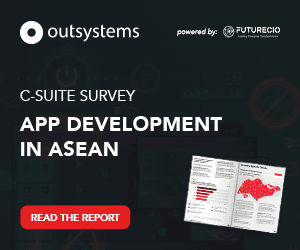Technology is more skills-based versus the social networks, family, or academic pedigrees that influenced leadership decisions in the past. This has enabled highly skilled women to get their foot in the door and progress.
So went the thinking of Dr Alicia Frame, director of Data Science at Neo4j. She and Alexandra Roza, vice president of Customer Solutions for APJ at Tableau, shared their views on women leaders in the age of data-driven organisations.
How have technology and digital transformation changed the role of women in leadership positions?
Dr Alicia Frame: Technology and digital transformation are inherently disruptive, and disruption offers an opportunity to change the status quo. By changing the way we conduct our work, and think about jobs, productivity, and skills, technological disruption has offered women new opportunities to take up leadership positions.
In a competitive environment, where hiring and retaining qualified employees can be a challenge, companies have paid more attention to attracting and developing women in the workforce as well.
Alexandra Roza: Technology is a great equalizer. In my 20-year career, I have witnessed how it has empowered the lives of women. More girls are being exposed to STEM at a younger age and are better placed to make a difference with tech.
Despite this progress, more must be done to increase the representation of women in senior leadership and executive board positions so they too can champion cultural shifts for gender equality.
How can we reset the picture? Data is one strategic asset that we must harness to challenge the status quo. With data, we can reveal insights, ignite conversations, and drive change.
For instance, it can be used to highlight existing issues like the gender leadership imbalance – while close to 70% of people believe men and women are paid equally, the truth is that women still get the shorter end of the stick even in developed countries.
We must rely on data as an objective truth to reveal these realities. Only then can we identify where the issues are and take concrete action to bridge this gap.
Is COVID-19 diverting from the importance of recognizing and promoting women leaders in technology and transformation?
Dr Alicia Frame: Pandemic containment and disruptions to daily life have disproportionately impacted women. Between school closures and remote learning for children, and dangerous conditions in assisted living facilities causing elderly relatives to move back home, women bear the majority of the burden of care, while simultaneously trying to hold down jobs.
In the U.S., women left the workforce at 4 times the rate of men in 2020 – erasing years of progress for equal representation and pay. The pandemic isn’t diverting from the importance of recognizing women leaders – it’s stifling women’s ability to lead, or work, full-stop.
Even as companies have empathy for women, female professionals still struggle to fulfil their responsibilities at home and on the job, with no end in sight.
Alexandra Roza: Not at all – on the contrary, the pandemic has heightened the need for increased diversity and inclusion across the board. Today’s unusual circumstances have called for novel and innovative solutions, and this is precisely the value that diversity brings. We benefit from divergent perspectives that can only come from different genders, races, and ages.
Women too bring unique experiences and perspectives that influence approaches to problem-solving, and these collective insights are crucial to develop new solutions that meet the challenges of the day.
As a tech leader, I see the need to ensure diversity and inclusion are at the forefront of every conversation and decision. So, while we must certainly pay attention to immediate issues around pandemic containment, this must go hand-in-hand with our efforts to champion gender diversity. When we ensure women are heard, we can create a future better than the one we have today.
What qualities stand out when it comes to women technology leaders?
Dr Alicia Frame: Women leaders work hard – and stand out – to get to their positions. In my experience, I’ve often had to perform at a much higher level than male peers – and I’ve seen other high-ranking women and people of colour have to pass that same bar. Because we’ve encountered bias, or just didn’t feel welcome, we’ve had to be good at what we do to get noticed, promoted, or hired.
One unique skill set that I’ve noticed in women leaders is a much more developed sense of emotional intelligence: empathy, self-awareness, self-control, and social savvy. Women are generally encouraged to develop their soft skills as children and young adults. Those become our secret weapons in our careers: we’re good at reading people, building trusting relationships with employees, and communicating our strategy and vision.
Alexandra Roza: What has been most striking to me is their confidence, perseverance and willingness to take risks.
What qualifications are needed to set one’s path towards a leadership role?
Dr Alicia Frame: The foundation of anyone’s journey to leadership is a solid educational foundation - whether it’s at a university or on-the-job training. While degrees in Computer Science or Engineering are valuable, they’re not essential – I have a doctorate in Biology!
What is important is knowing how to learn, and how to educate yourself about new topics, and not being afraid to champion your success.
Alexandra Roza: Paper qualifications alone are not enough to prepare one for leadership.
Like mastering anything - a sport, language or a skill - leadership is an ongoing practice. At Tableau, we understand how data permeates all aspects of the business. People focus on measurable outcomes, digging deeper into data to understand what drives results. They challenge ideas with data-based experiments to drive innovation.
Successful leaders embrace this shift in how people think, speak and act around data. As people become more comfortable working with data, they seek new and better ways to use it. That’s leadership in action.
What is that one leadership lesson you’ve learned in your Data Science career?
Dr Alicia Frame: Never underestimate the value of your relationships. As I’ve graduated to more and more senior positions in my career, I’ve never forgotten that it’s easier to lead if people want to come with you, and relationships built on trust, mutual respect, and integrity matter just as much when you’re an individual contributor as when you’re a C level executive.
Early in your career, you might not have a fancy title, but your influence and your ability to inspire and motivate people around you – will be critical to getting things done. Those skills, and the relationships you’ve forged along the way, will provide the foundation for the rest of your career.
Alexandra Roza: Change waits for no one - you always need to look for creative ways to grow. I like to say that my mantra from a young age was “always be learning.” We live in a world of constant and rapid change. As a leader, you cannot afford to be in stasis as you will cease to be relevant to your team, your profession, your industry.
As a woman in tech, I find that pursuing new skills and knowledge through formal and informal learning modes has built my confidence and strengthened my voice while growing my value as a professional, a leader, and an individual.
What advice would you give to the next generation of female leaders?
Dr Alicia Frame: Don’t be afraid to be confident. I’ve spent my whole career struggling with whether or not it’s ok to talk about my achievements or take credit for the work I’ve done. I’ve often deferred compliments to my teammates or direct reports.
But I’ve realized that if I don’t ever speak up for myself, and promote my abilities, no one else will. It took me a decade of working to realize that - while wondering why I was passed up for promotions in comparison to more self-aggrandizing male colleagues.
Alexandra Roza: Build strong networks and mentor women who aspire to be in leadership. We all need to “pay it forward” and teach others to do the same.
From acting as mentors and building a diverse and inclusive culture where everyone can thrive, to celebrating the skills and experience of other women, we owe it to ourselves to ensure that we pass on the baton.




